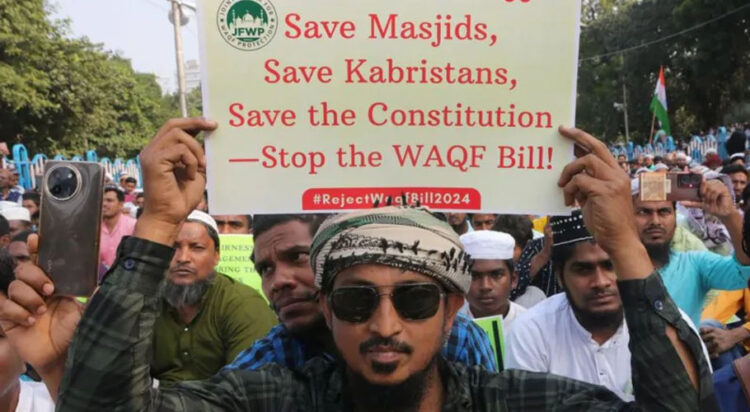Lok Sabha, India’s lower house of parliament on Thursday passed a controversial bill moved by Prime Minister Narendra Modi’s Hindu nationalist government to amend laws governing Muslim endowments worth more than $14bn.
As per media reports, the waqf bill would add non-Muslims to boards that manage the endowments and give the government a more significant role in validating their land holdings. Waqf refers to personal property – moveable or immovable – that is permanently donated by Muslims for religious or charitable purposes.
Modi’s Bharatiya Janata Party (BJP) argues the proposed changes to a 1995 waqf law will help fight corruption and mismanagement while promoting diversity.
But Muslims fear the move could leave waqf properties – historic mosques, shops, shrines, graveyards, and thousands of acres of land – more vulnerable to confiscations, disputes, and demolitions.
Why are Muslims opposing the bill?
Muslim organisations and leaders strongly opposed the Waqf (Amendment) Bill passed by the Bharatiya Janata Party-led government in Parliament on Thursday. They argue that the move could leave waqf properties – historic mosques, shops, shrines, graveyards, and thousands of acres of land – more vulnerable to confiscations, disputes, and demolitions. The proposed changes will be detrimental rather than beneficial to the Muslim community.
They believe that the Bill is an attempt to weaken the autonomy of Waqf properties and seize lands that have been historically dedicated for religious and charitable purposes.
Senior members of the All India Muslim Personal Law Board (AIMPLB) have denounced the Bill, stating that their concerns were disregarded by the Joint Parliamentary Committee (JPC). “The AIMPLB and other Muslim organizations have conveyed their concerns over the Bill to the JPC, but they were not considered,” said Maulana Khalid Rashi Farangi Mahali, a senior executive member of the Board, to PTI.
He emphasised that Waqf properties hold deep religious significance, comparable to fundamental Islamic practices, and that any amendment affecting their status is unacceptable.
Muslims are also considering moving to court against the bill.

































